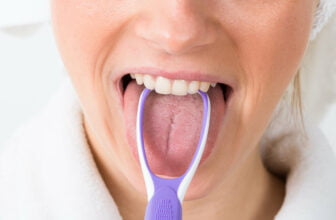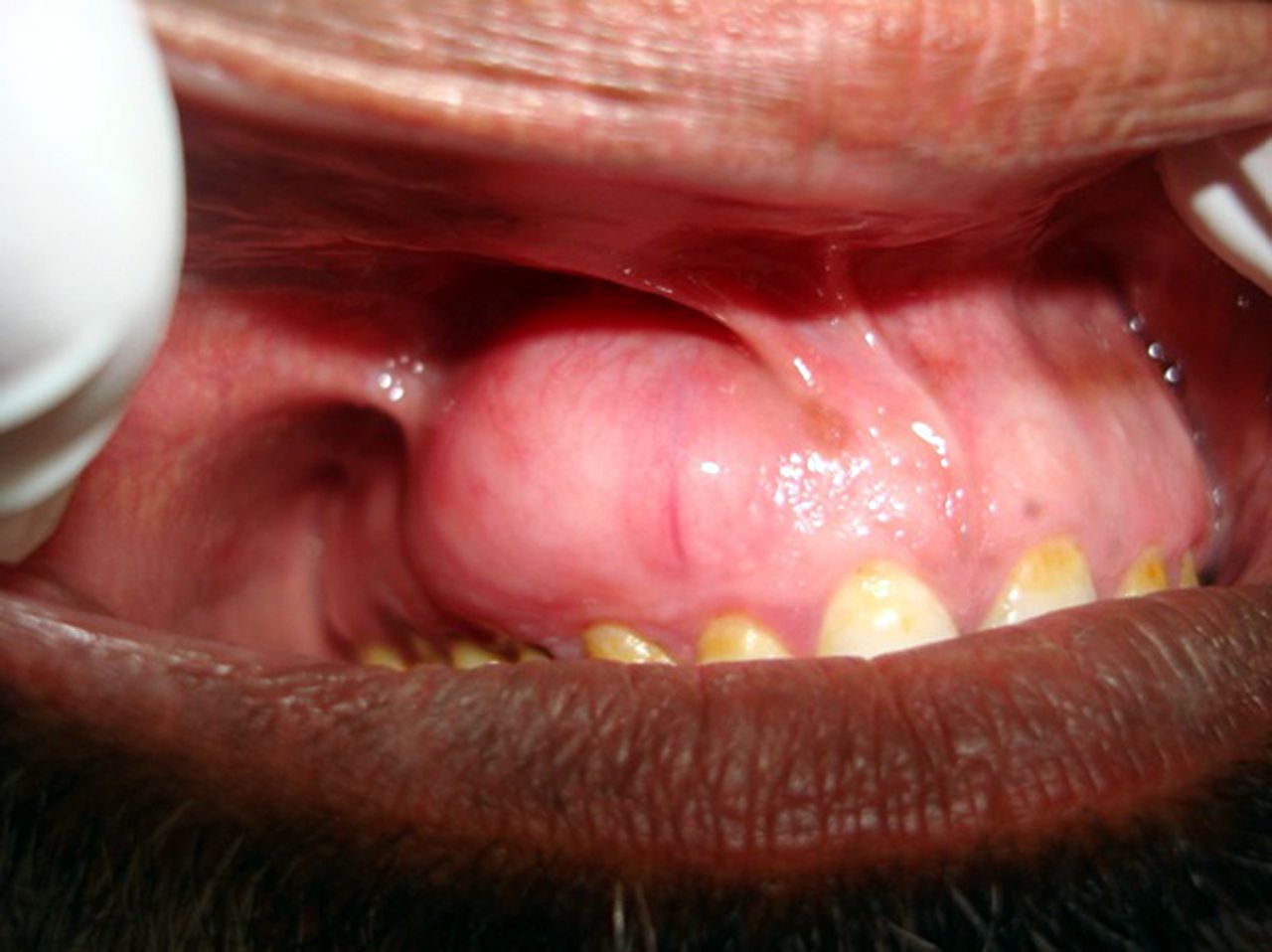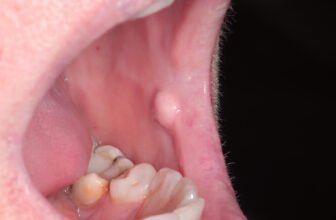What is Mucocele? Location, Causes, Diagnose, Complication and Treatment?
Sometimes when you wake up in the morning and suddenly there is a small bump in your mouth that looks like an ulcer but a little bigger and appears to be filled with water-like fluid and painless. That is Mucocele. Mucocele refers to a fluid filled swelling/ cyst in your mouth that is harmless and non-malignant.

How does a Mucocele form?
Do you know how our mouth stays moist with Saliva? Yes, that saliva is secreted by a set of “Saliva Factories” medically known as “Salivary Glands”. These glands secrete a protein named Mucin and which upon mixing with water forms a slimy substance known a Mucus. Now, during a regular functioning, this mucus flows into the mouth and does its job. But sometimes, due to certain disruptions or small trauma to these salivary glands, this mucus leaks at the trauma site into the surrounding area or tissue. Since there is a layer of tissue above, this accumulation keeps happening and forms a bump within a few days. This entire process is medically known as “Extravasation”. There are a few instances where even blockage in the pipes or “Ducts” of these glands causes the buildup of mucus causing a Mucocele. This phenomenon is known as “Retention”. Both these, Extravasation and Retention, cause the formation of Mucocele.
Where can you usually see a Mucocele and how does it appear?
While a Mucocele can occur anywhere inside your mouth, there are certain areas where it can occur normally. These areas can be:
- The inner part of the lower lip. It is the most affected area.
- The gums
- Below the tongue
- The inner part of the cheeks
- The floor of the mouth. If a Mucocele occurs at this site it is called a “Ranula”

As for the appearance and characteristics, it appears like a bump that is round in shape and looks like a dome. Mucocele is soft to touch and painless. It can be clear to bluish to pinkish in color ranging from a diameter of 2-10 mm.
What causes a Mucocele?
Like mentioned it occurs due to trauma to the salivary glands. Now, what causes these traumas, let us have a look. A few of the causes are as below:
- Many people tend to bite their lip or cheek during stress or as a habit. This can cause minor injuries and lead to the formation of a Mucocele.
- In certain instances, abnormally aligned or misaligned teeth can be causing a constant trauma by biting or pinching in the areas of the cheeks or lower lips. Those areas can form Mucocele.
- Piercing of the lower lip is quite common these days and the piercing may lead to injury to salivary glands and Mucocele may develop at the site of piercing which could even cause pain.
- When a person is a regular or chain smoker, the nicotine in the tobacco causes irritation to the tissue inside the mouth which can also cause the formation of Mucocele.
- Extremely hot foods can damage the mouth tissue and can potentially lead to the formation of Mucocele.
- While chewing hastily you might bite yourself on the inside of your cheek or lip. This can also cause Mucocele. Hence always chew down your food slowly.
- Any accident or sports injury might also cause damage to salivary glands and a Mucocele might form.

How to Diagnose a Mucocele?
Firstly, in some cases, if you know what Mucocele is, you can easily identify one. However, it is always advisable to go to your dentist as soon as you encounter something unusual in your mouth. The dentist is the right person to diagnose the Mucocele. An expert eye can identify it during the examination of the mouth.
If closer information is needed, Biopsy samples can be taken and sent to the laboratory or an Ultrasound can be performed based on your doctor’s recommendation.
What are the complications associated with Mucocele?
While the smaller Mucoceles may not cause much discomfort since they are usually painless, the large Mucoceles cause serious hindrances in many day to day functions. Large mucoceles present in the mouth may cause discomfort with speech, chewing, and swallowing. It has more discomfort than harm. A person might feel conscious and low on confidence due to this.

What is the treatment approach for Mucocele?
Mucocele that is small does not require any specific treatment. They tend to resolve on their own in sometimes without any treatment. But some Mucoceles enlarge in size and cause discomfort.
The small Mucoceles can be resolved with simple and home treatments. One such remedy is Saline gargles or rinses. These rinses help drain the excess fluid when done on a regular basis for a few days. It lowers the risk of infection and helps to remove the blockage of the Salivary gland too.
Another method that requires surgical intervention by a Dentist or Doctor is when the Mucocele enlarges in size and causes serious discomfort. Another instance where surgical intervention is required is when the Mucocele reoccurs frequently.
Now let us discuss what goes into the surgical part of the treatment of Mucocele. The only way opted surgically is to remove the Mucocele and the minor salivary glands. There are various methods to do this procedure. They are as below:
- The classic removal by cutting with a special blade called “Scalpel” and removing the Mucocele along with minor salivary glands and then tying up the area with stitches together and leaving to heal.
- Another way that is a less invasive method without the need to cut or sew is LASER therapy.
- There is a specialized medical treatment known as “Marsupialization” which is undertaken in the cases where there are blockages in the salivary gland. In this method, new tunnels medically called as ducts are promoted to form. Hence the Mucocele that has occurred due to accumulation caused by blockage can start to drain the mucus fluid regularly and the Mucocele resolves.
By far you must have understood that Mucocele is not harmful, they just cause discomfort because of their size and the place that they occur. But another thing here to note is that Mucoceles do re-occur. So proper care must be taken. All the habits like Lip biting, Cheek biting, smoking should be duly avoided. In case of other noticeable orthodontic issues, a visit to a Dentist’s clinic should be done.





